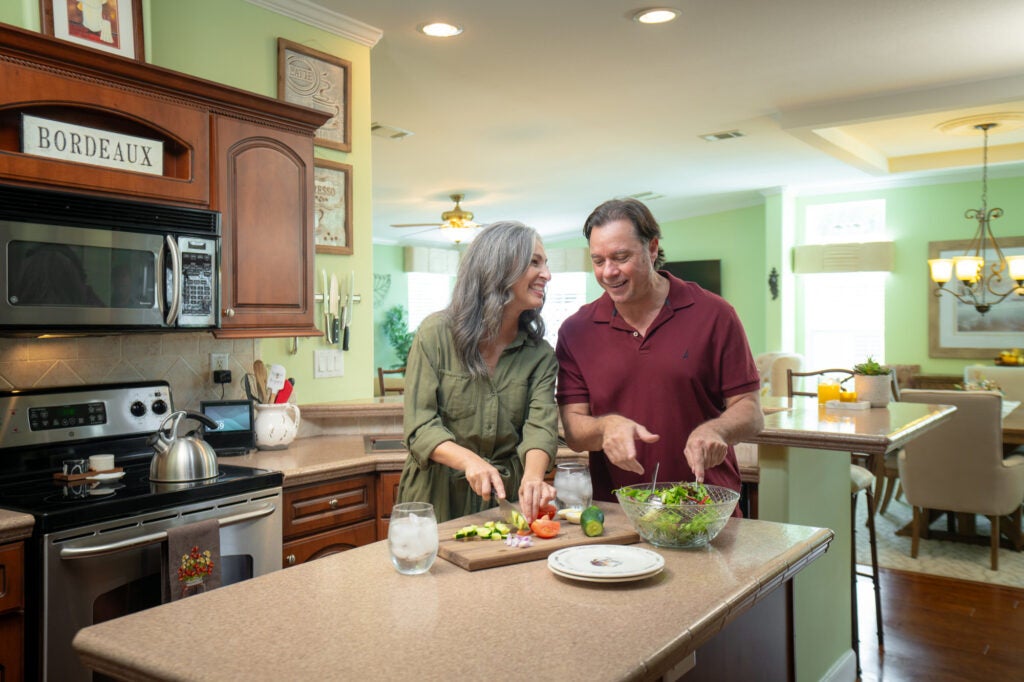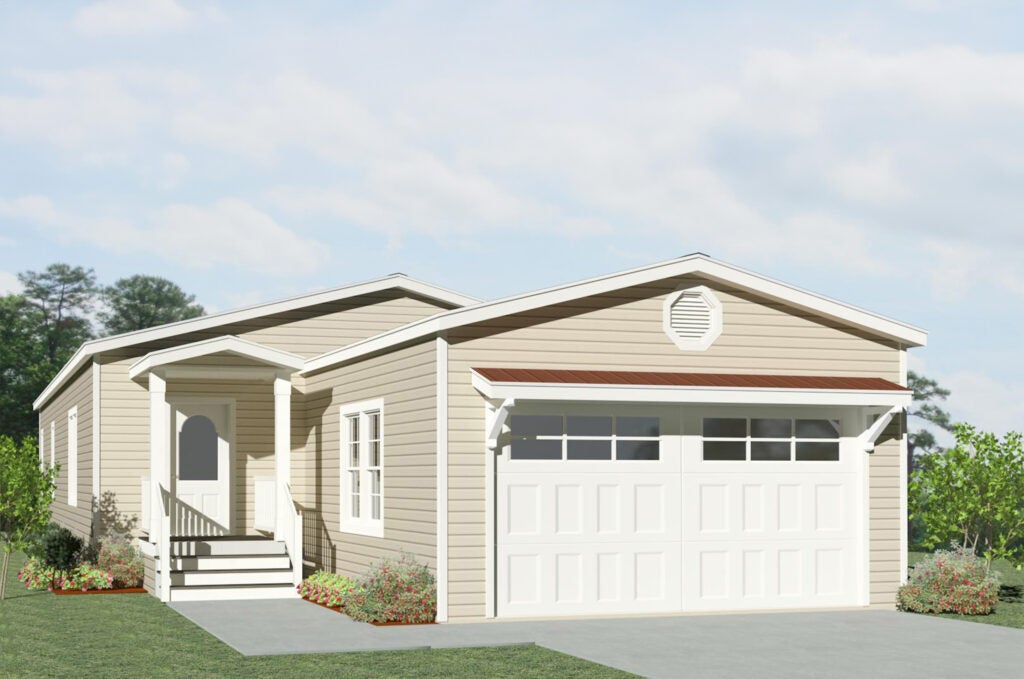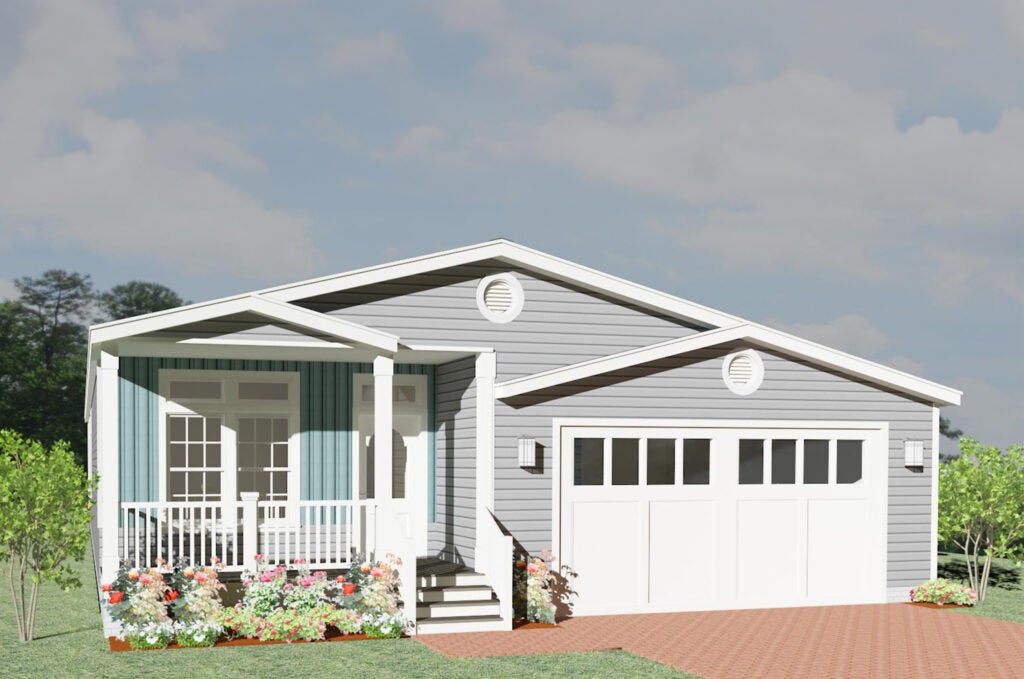Buyer’s Guide Resources
We understand that purchasing a new home is a significant milestone, which is why we’re dedicated to simplifying the process for you. Explore our diverse range of floor plans, get answers to frequently asked questions, and learn more about financing and fees associated with owning a home in a manufactured home community.

We understand that purchasing a new home is a significant milestone, which is why we’re dedicated to simplifying the process for you. Explore our diverse range of floor plans, get answers to frequently asked questions, and learn more about financing and fees associated with owning a home in a manufactured home community.
Floor Plans
Beachcomber

Beachcomber
Harborside

Harborside
- 46’x30′
- 1,380 Square Feets
- 3 Bedrooms
- 2 Bathrooms
- 2 Car Garage
Frequently Asked Questions
Using Florida as an example for context, there are over 750 conventional, site-built communities committed to a retirement lifestyle in Florida. On the other hand, there are over 50,000 manufactured home communities in Florida; a small handful of which are top notch lifestyle communities. The reason, yet again, is cost.
Even the most conservatively priced manufactured home is built with a complete package (in most average or higher rated communities) that includes flooring, window coverings, appliances, A/C and heat, carport and driveway, utility storage, often times a screen porch, as well as a fully sodded homesite. Plus, there is an unlimited list of additional features that are available to add on or upgrade.
All of this — brand new — comes within a price range of $90,000 to $240,000.
Well, this certainly is a loaded question, but we will address two very common points. It’s obvious that you must consider and select a community that fits your lifestyle and your budget, of course. But second, it’s critical to choose a community that is successfully managed and financially stable.
Do your research:
- What is the age of the community and/or the company that owns it?
- Who holds the most prominent seat and how long have they been with the company?
- What level of maintenance does the community consistently have?
- How many homes are in the community versus how many are for sale [10% ratio is ideal]?
- How many homes have recently sold and what prices are they selling for?
- What are the lot lease fees and how much/often have these increased?
Typically, you can determine the success and stability of a community when you visit it. Be sure to chat with residents and employees and listen closely to their comments. Obviously some remarks should be taken with a grain of salt, but tune in to those that represent what you are or are not looking for in your next home.
Have you heard of the term Snowbird? A number of Cove Destinations’ residents are Snowbirds, traveling to our lifestyle communities for part of the year, typically when temperatures are colder in their hometowns. Many of our Snowbirds have chosen to invest in their retirement early. By that we mean they’ve purchased their ideal home, but they take short trips or vacations periodically throughout the year and actually use the home for a rental investment property, renting it out for additional income.
By utilizing the Snowbird mentality, you can carefully select your dream home, continue pursuing your typical lifestyle, which may consist of full- or part-time work to cover your basic costs, all while you rack up supplementary income on the home … and you get to take a vacation whenever you want!
Thousands of residents have made the same comments over and over, so it must be a reliable statement that “There is a special relationship between residents and neighbors in a successful manufactured home community.”
You tend to feel a “’community-like atmosphere” reminiscent of the small towns and city neighborhoods you grew up in … carefree, peaceful and serene, light hearted and friendly.
The relationship between management and residents in a manufactured home community is much closer than those in conventional home communities. In most leased land environments, your monthly fees guarantee that professional management is onsite, available and responsible for your happiness, which means they are present and committed to fostering relationships that will continue to help the community thrive.
Not all manufactured home communities are considered safe, but the more successful and well-planned communities are. Depending on what your standard is, we recommend you look for a gated community that limits access one of two ways: With a manned guard who permits access based on a community sticker or license plate or with a powered gate that operates by keypad, sticker or a garage-door-style opener.
Some communities even go as far as providing roaming patrol, which means a person will drive around the community, particularly during the nighttime hours, to ensure all is well.
Successful, well-operated manufactured home communities are obligated to provide a safe and ideal atmosphere; but that doesn’t mean they are obligated to provide healthcare or medical attention when needed. We always want to point out that if you have any specific medical needs that may require attention from time to time, it’s important you put the appropriate measures in place to alert medical personnel. Even if you’re healthy it’s important that you always remember to dial 9-1-1 in the event of an emergency, keeping in mind that most communities are staffed by employees, not trained first responders.
In the sense of the factory constructed home, a private setting, and a common-area clubhouse, manufactured home communities are generally alike. From that point on, the differences in lifestyle differ drastically originating from the creativity of the developer who designed the community, to their experience, success and financial well-being.
The thought that goes into building and modifying a community is critical, from the space between homes and the views from within the homes, to the attractive and well-manicured entrances and common areas are all points of contrast.
You need to consider what amenities and activities you’re looking for in your new (or part time) residence, as well as the safety and security of your community, whether it is pet friendly or not, and what all is included in your monthly lease fee.
There is no realistic competition between a manufactured home and a conventionally constructed home because of one factor alone: cost.
So, conventional builders might be more inclined to speak poorly about manufactured builders in an effort to make their product look more desirable. At the end of the day, it’s just a negative sales pitch that doesn’t hold any weight.
You can be perfectly happy in a community of conventionally constructed homes if it meets your ideal standards and what you’re looking to spend. And you can be equally as happy in a condo or apartment for that matter. As long as you’ve taken an in-depth look at these choices then it’s up to you to make the decision that suits you and your lifestyle best.